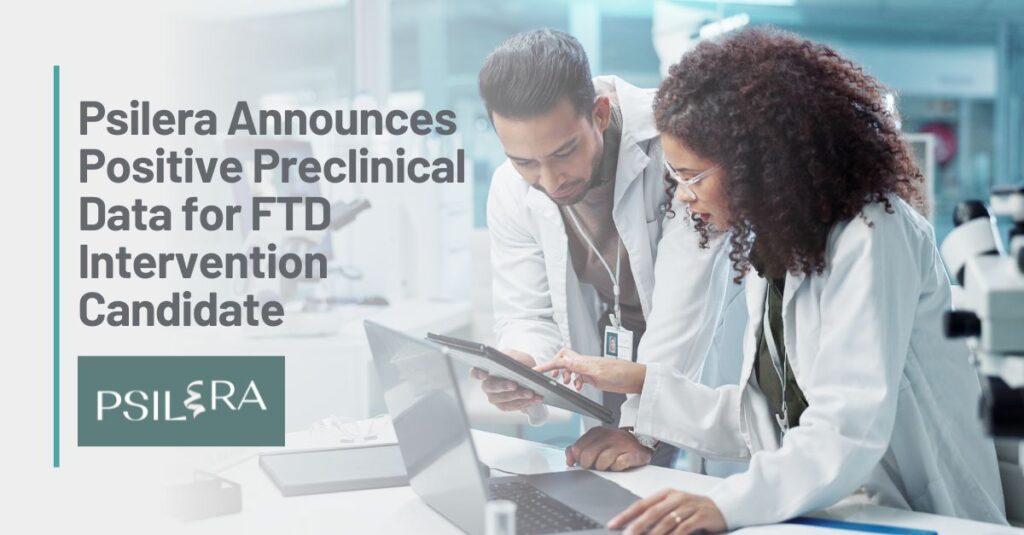Psilera Announces Positive Preclinical Data for FTD Intervention Candidate

Biotechnology company Psilera announced positive preclinical data for its FTD drug candidate, moving it another step towards first-in-human studies. The company also underscored promising data from efficacy studies conducted by the University of South Florida (USF).
The drug, a compound called PSIL-006, is a psilocybin derivative that has a safe, non-hallucinogenic profile, making it a good candidate for take-home use, notes the company. Psilera says PSIL-006 has shown a positive effect on serotonin receptor 2A, a common target in the brain for medicines treating psychiatric symptoms. And in preclinical studies, PSIL-006 has demonstrated no side effects that could limit treatment effects.
In the company’s recent announcement, Psilera indicates toxicity data from studies of PSIL-006 showed a “strong safety profile.” Data from studies conducted by USF with the Tau protein on humanized mouse models showed that PSIL-006 improved learning and memory and aided sleep.
“From the start, our primary focus was to develop a new class of neurological therapies for patients that eliminate unnecessary side-effects which traditionally limited patient access to natural compounds with high therapeutic potential,” said Psilera Co-Founder and CSO Jackie von Salm, PhD. “This initial data reinforces our strong belief that neuroplastogens have tremendous untapped potential.”
In January, Psilera named behavioral variant FTD (bvFTD) as the “lead indication” for PSIL-006, selecting it as the primary condition for which the drug would be developed. Discussing the unmet needs of families facing bvFTD, Dr. von Salm said at the time, “After having personal experience with this rare and devastating form of dementia, we aim to make a meaningful impact on the lives of patients and their families who are left without any treatment options.”
Scientists at companies like Psilera are working to address FTD, bringing increasing numbers of novel interventions and diagnostic tools through to preclinical and clinical trial stages of research. In August, Aviado Bio CMO David Cooper, MD, discussed the specifics of the Phase 1/2 ASPIRE-FTD clinical trial with Neurology Live.
If you are interested in keeping up with the latest opportunities to participate in clinical trials driving research towards an FTD-free future, sign up with the FTD Disorders Registry. In addition to helping you stay up to date on FTD research, the Registry is a platform to share your lived experiences and guide scientists in their work.
By Category
Our Newsletters
Stay Informed
Sign up now and stay on top of the latest with our newsletter, event alerts, and more…
